Private and civic hospitals forced to open post-COVID rehab centres and OPDs because long after testing negative, some patients are experiencing life-threatening impact, including heart failure.
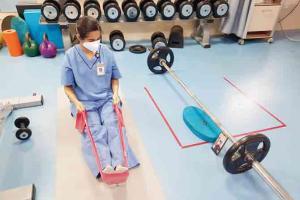
Gagandeep Kaur, physiotherapist at the cardio-pulmonary rehabilitation at Sir HN Reliance Foundation Hospital, demonstrates exercises to a patient over a video call
After 18 days in the hospital, a week of which was spent battling for life in the ICU, Santosh Kumar, 43, found himself spiralling into depression. Surviving the Coronavirus, he realised, was just the beginning. Obesity and diabetes had led to severe health complications, reducing him to an invalid. He could no longer stand on his feet. He spent his days lying on the bed in the COVID-19 ward of Hyderabad's Apollo Hospital—the oxygen cylinder, a permanent fixture by his side. Worse was that time of day when he wanted to pass stools or urine. Because he couldn't get up, he often soiled the bed. Santosh, originally from Jagtial in Telangana, didn't share his condition with his brother Mahesh, who was also struggling to look after their COVID-infected parents, admitted to the same hospital as him. Mahesh was finding it hard to afford the treatment and had enquired if he could take Santosh home. "But, the problem was that he was far from okay. He could barely walk three steps, and that too with the help of a nurse," says Mahesh, in a telephonic interview with Sunday mid-day. On the suggestion of one of the specialists, he was referred to the Post COVID Rehab Centre, run by Hyderabad-based NGO, Helping Hand Foundation. Santosh refused point blank. "My brother had had enough of the hospital. He was extremely disturbed. We had to counsel him for over an hour-and-a-half, before he agreed to be shifted." That decision was the only bright spot to an otherwise difficult September.
Within three days of moving to the rehabilitation centre, Santosh could breathe without continuous need for an oxygen cylinder. By the fifth day, with the help of regular physiotherapy, he had started walking on a treadmill. Ten days on, Santosh was ready to leave the centre.
ADVERTISEMENT
The brainchild of Mujtaba Hasan Askari of Helping Hand Foundation, the centre is a first-of-its-kind initiative, launched in mid-August to provide COVID-19 survivors, who continue to have lingering effects of the disease even after beating the virus, with a combination of therapies, so that they can return to a normal life. "Our organisation works very closely with government hospitals in Hyderabad, so, we were getting a sense of what was happening on the ground. We learnt that even after testing negative, many patients needed oxygen therapy and physiotherapy, because of complications that had emerged during treatment.
But the conversation around post-COVID rehab was yet to gain steam. This was the trigger for us. Since we already had a 30-bed rehab centre for neuro and tracheostomy care, we decided to use one of our floors for post-COVID treatment," says Askari. His team of physiotherapists, a naturopath and yoga instructor, has successfully treated 22 patients till date. Two patients with severe comorbidities, unfortunately, passed on. This only means that nipping the Coronavirus in the bud is not enough, says Askari.
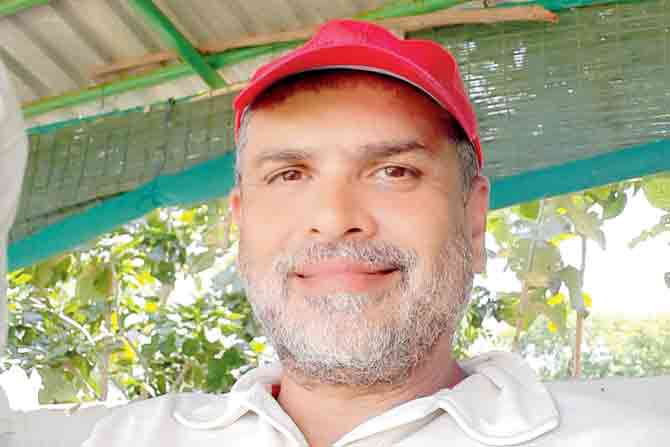
Mujtaba Hasan Askari
Closer home in Mumbai, hospitals and specialists have started taking post-COVID care more seriously. In August, Fortis Hospital, Mulund, launched the city's first post-COVID OPD. A month later, Fortis Hiranandani Hospital, Vashi, and Sir HN Reliance Foundation Hospital, Girgaum, announced their own post-COVID rehabilitation programmes. The city's civic hospitals and jumbo COVID-19 centres are now following suit.
Over the last few months of treating patients, we realised that while COVID-19 starts off as a disease, it continues as a syndrome in a small number of people," says Dr Rahul Pandit, director, Critical Care, Fortis in Mulund. Even the disease, he says, has two phases. "One is the viral phase, which lasts for a week or little more.
The next phase is the immune phase, where the viral destruction happens, and this large RNA protein in the body offers an immune response." Patients, who recover from this acute phase and test negative, often continue to have syndromes, where they show various kinds of symptoms, like fatigue, profound breathing difficulties, disturbance in the sleep-wake cycle, erratic heart rate, and reduction in their day-to-day activity. "More and more patients were coming back to us, complaining of these issues," adds Dr Pandit.
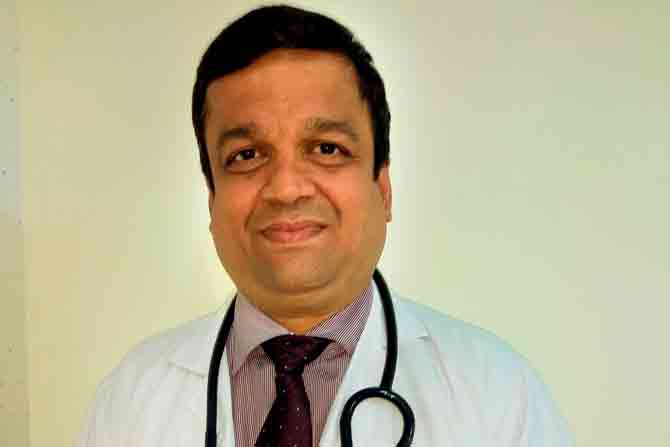
Dr Rahul Pandit
An article on the long-term health consequences of COVID-19, published on October 5 in JAMA (Journal of the American Medical Association), a peer-reviewed medical journal, identified this condition as postacute COVID-19. While there is still no consensus on its definition, "based on the COVID Symptom Study, in which more than four million people in the US, UK and Sweden have entered their symptoms after a COVID-19 diagnosis, postacute COVID-19 has been defined as the presence of symptoms extending beyond three weeks from the initial onset of symptoms and chronic COVID-19 as extending beyond 12 weeks," shared the authors, Carlos del Rio, Lauren F Collins, and Preeti Malani.
Dr Pandit says that the OPD is distinctly different from the follow-up sessions they usually conduct with COVID-19 patients, who get discharged from the hospital. "Only patients who have nagging symptoms are referred to the OPD." A special programme is designed on the basis of the symptoms, which is then followed up with regular tests and check-ups, to help them recover fully. As of Wednesday, 126 individuals had acquired the services of the Fortis OPD.
Sir HN Reliance Foundation Hospital, on the other hand, has crafted special offline and telerehab packages, which include cardio-pulmonary therapy, yoga group classes, speech therapy, and diet and psychology consultations. "Those COVID-19 patients who need rehab belong to the extreme end of spectrum. They either had an extended hospital stay, or were in the ICU or on ventilation for a very long period," says Dr Aashish Contractor, director, rehabilitation and sports medicine.

Dr Aashish Contractor
The Reliance rehab programme focuses on four aspects of the body affected the most due to the disease. First, is the cardiovascular (the heart), second is the pulmonary (lungs), third, is the neurological (the brain) and finally, the emotional health and well-being of the individual. Dr Contractor points to the JAMA article, which elaborates on the manifestation of the symptoms in these four areas. The article mentioned how myocarditis—inflammation of the heart cells caused by the body's immune response to the viral infection—was observed in some patients. It referred to a study of college athletes who'd tested positive for the virus, but had mild or even no symptoms. Incidentally, 15 per cent of the athletes, showed signs of inflammation in their cardiac MRI scans. Another research group from Germany found that 78 per cent of people who'd recovered from COVID-19 showed abnormalities on MRI scans of their hearts taken two months later. Apart from this, a significant decline in lung function was seen in some, with evidence of fibrosis and clots in blood vessels. The neurological symptoms include headache, vertigo, and chemosensory dysfunction (anosmia and ageusia), encephalitis, seizures, major mood swings and 'brain fog'— the inability to have a sharp memory. Most worrisome is that some of these symptoms were reported months after the initial onset of the illness. "Some of these conditions are not obvious, and emerge only during the tests or while exercising," said Dr Contractor. "While fatigue is the most obvious sign to watch out for, I would say that if you've recovered from COVID-19 and still don't feel yourself, just go and consult the doctor," he adds.
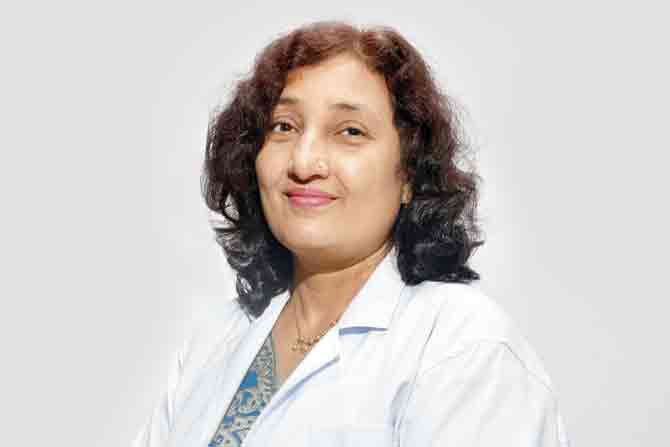
Dr Farah Ingale
At Fortis Hiranandani Hospital, Vashi, there was a case where a patient, who wasn't elderly and didn't suffer from comorbidities suffered a stroke, 10 days after discharge. "His COVID-19 test was positive three weeks earlier," says Dr Farah Ingale, director-internal medicine at the hospital. "Normally, it's said that the virus does not replicate after 10 days. But, recently there was a case where the virus was active for nearly 90 days." Sometimes, it is also the dead virus at play.
"Patients need to be carefully monitored, even after discharge. When they return home, their temperature and oxygen saturation levels should be checked at least three times a day. If these issues are picked up in the early stages, they can be treated on time. The first three months are most critical." This is useful in identifying cardiac issues. "A patient came back to us with a heart ailment. Another patient had suffered a myocardial infarction [heart attack that occurs when blood flow decreases or stops to a part of the heart]," she says. "This is why, in some cases, we prescribe blood thinners to patients."
Heart attacks and strokes, in fact, are a prevalent feature of COVID-19, says Dr Lancelot Mark Pinto, consultant respirologist at PD Hinduja Hospital. "We have had several patients who've come to the hospital after a heart attack. They were later found to be COVID-19 positive." Dr Pinto discusses a 2018 research by Intermountain Heart Institute at Intermountain Medical Center in Utah, where lung scans of about 50 per cent people who had a heart attack, revealed some kind of viral or bacterial pneumonia. "Pneumonia triggering heart problems is a known fact, even before COVID-19 hit us. Anything that jeopardises the respiratory system and puts strain on the heart, can result in an attack. Post COVID-19 such conditions are only amplified."
Special attention also needs to be paid towards elderly survivors, or those who have comorbidities, or are immunocompromised.

Dr V Rangaraj has been taking the post-COVID telerehab sessions at Sir HN Reliance Foundation Hospital. “We began with breathing and walking exercises. Now, we have moved on to doing three days of exercise, and two days of yoga, where we focus on breathing and body flexibility,” he says
This is one of the reasons why 69-year-old Dr V Rangaraj, an open-heart surgery patient, who otherwise had a smooth recovery, was advised rehab by his doctors at HN Reliance Foundation. Rangaraj, who is trustee and honorary secretary of Shanmukhananda Hall, had the surgery just about a year ago and was also diabetic. When he tested positive for COVID-19 in early September, he immediately checked himself into Lilavati Hospital, where he received intravenous Remdesivir, as part of the treatment. He recovered within a week, despite comorbidities. "What helped me I think, were the exercises that I did at the rehab centre [at Reliance] after my cardiac surgery in 2019," says the 69-year-old. "It created some resistance in the body." His post-COVID telerehab sessions, scheduled daily over WhatsApp video calls with physios from the hospital, are an extension of the programme that he previously enrolled for. "COVID-19 had completely sapped my energy. So, I had to do everything gradually. I started [the sessions] a week after I returned from the hospital. We began with breathing and walking exercises. Now, we have moved on to doing three days of weights and free-hand exercises for an hour, and two days of yoga, where we focus on breathing and body flexibility," he says.
For some, who've experienced the worst with the disease, post-COVID rehab provides a semblance of security. Srinivasan Iyengar and three members of his family—his wife and octogenarian parents—tested positive for COVID-19 in late September, and were admitted to Fortis, Mulund. Though age wasn't on their side, his parents recovered almost immediately. He and his wife, however, developed multiple complications. "The doctors knew our case history, and suggested we opt for this," says Iyengar.
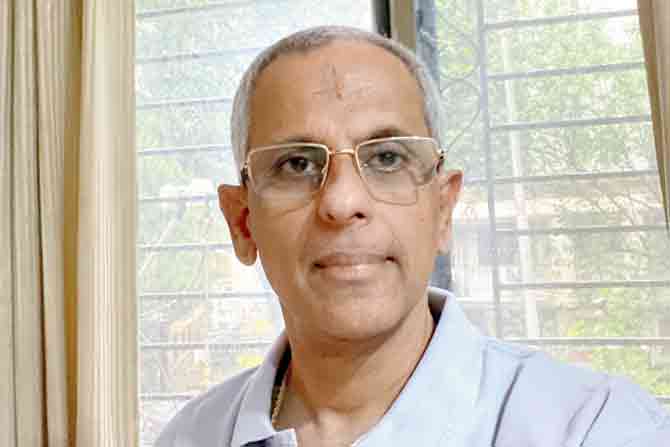
Srinivasan Iyengar and three members of his family—his wife and octogenarian parents—tested positive for COVID-19 in late September, and were admitted to Fortis, Mulund. Knowing that it was better to be safe than sorry, he enrolled his entire family for post-COVID treatment at the hospital’s OPD
Knowing that it was better to be safe than sorry, he got his entire family to take post-COVID treatment at the hospital's OPD. "They got our blood checked on the seventh day after we returned [from the hospital]. On the 28th day, which is next month, we will all be expected to get an ECG test done. These follow-ups help," said Iyengar, who experienced fatigue and weakness for several days after recovering. These issues, through regular lung exercises, have ironed out. Iyengar, who is a marathon runner, finally started stepping out for long walks this week.
Emotional and mental well-being of COVID-19 patients has been another, overarching concern, which is being addressed in all these rehab programmes. Askari of Helping Hand Foundation says that several patients admitted to their centre, had experienced COVID-19 related stigma from family and neighbours, resulting in a sense of hopelessness. Many doctors and paramedical staff, who battled the disease, have also been getting nightmares, says Dr Pandit. "I had a doctor colleague, who had a bad time on the ventilator. After he recovered, he would wake up in the middle of the night feeling that a tube was inserted through his neck. That nightmare of the ICU continued to haunt him for nearly two months."

Dr Shwetambara Sabharwal
Ever since the lockdown, psychologist and psychotherapist Dr Shwetambara Sabharwal has offered therapy to nearly 400 distressed people, many of whom are COVID-19 survivors. "Worry and anxiety over contracting the infection is one issue, holding a report that indicates you are positive is another. Patients mostly report having mild to severe anxiety. We have also seen cases of acute stress disorder, panic attacks, somatic symptoms disorder, OCD, insomnia, and mood fluctuations. Another significant emotion reported is guilt or regret of having exposed self and their families to the virus. This is exacerbated significantly if there is a loss in the family. This is leading to the onset of depressive symptoms ranging from low mood to feeling worthless and suicidal ideation. And lastly, almost every patient reports struggling with isolation," says Dr Sabharwal, who offers post-COVID counselling to patients.
Some of the symptoms, she says, are not immediate. "A patient who has tested positive would be diagnosed with depression only after six months of showing symptoms post onset. It is the same with PTSD [post-traumatic stress disorder]."
Dr Sabharwal has been following a three-pronged approach, when counselling COVID-19 survivors. The first is mindfulness. "This includes focusing on the present, breathing and visualisation for relaxation, and recognising and accepting the physical and emotional distress without judging the self. Second is a cognitive approach, which helps patients dispute irrational thinking and corrects cognitive distortions." The last approach, she says, is that of neuroplasticity or rewiring the brain. "This involves practising willingness and resolve, self-regulation, enhancing distress tolerance and building emotional muscle." If not treated immediately, mental health symptoms can escalate. "This is already proving right in case of people who were battling psychological concerns before the pandemic hit and have done nothing about it. They have found themselves deteriorating in the face of this added stress."
Dr Pandit is also part of the COVID-19 task force appointed by CM Uddhav Thackeray, which is helming the planning and streamlining of Coronavirus-related healthcare and infrastructure in the state. He says that the success of the model in his own hospital, has prompted discussions on having similar OPDs in civic and special COVID-19 hospitals. Earlier this week, Dr Rajesh Dere, dean of the BKC COVID-19 facility, said that a post-Covid OPD had been made at the venue to "prevent relapse of infection and rehabilitation of the patients".
Meanwhile, the Kalyan Dombivli Municipal Corporation (KDMC) has also announced setting up two post-COVID rehab centres in Kalyan and Dombivli respectively. "We are the first municipal body in Maharashtra to have dedicated centres available for post-COVID care," said Dr Pratibha Panpatil, health officer of KDMC. "The Indian Medical Association in Kalyan approached us saying they were willing to offer their services. We have given them a centre in Mahajan Wadi, and it will open soon. Similarly, the KDMC along with the South Indian Association's College of Physiotherapy will be starting a centre in Dombivli." The KDMC will be sharing a helpline number with the people. "Our physiotherapists will take down the patient's case history, and after registering them, we will offer an appointment. As of now, we are not going to be offer an online service. The patient will have to visit the centre."

Santosh Kumar seen walking on a treadmill at the Post COVID Rehab Centre, run by Hyderabad-based NGO, Helping Hand Foundation. Before admission, he could barely walk three steps with the help of a nurse
Depending on the severity of the symptoms, doctors say that post-COVID treatment could last anywhere between four weeks to three months. "There will be a point where we absolutely cannot ignore post-COVID rehabilitation. All COVID-19 hospitals looking at patients in substantial numbers, should certainly look at these specialised OPDs, because cure from COVID-19 is not essentially cure from the symptoms. The goal should be to get people back into the community and ensure they are productive as before," adds Dr Pandit.
The Rehab checklist
In a recently published article titled, Rehabilitation after COVID-19, Derick T Wade, professor of neurological rehabilitation, Oxford Centre for Enablement, suggested considering the following areas when reviewing the situation of a person with COVID-19. If you admit to any of the problems in the list below, a more detailed rehabilitation assessment may be needed.
Are you able to undertake, if you wish and at the level you expect:
- Vocational activities (work, education, other occupation)?
- Leisure, household and domestic activities?
- Feeding yourself, swallowing safely?
- Washing, dressing, using toilet, being continent?
- Getting about the house, moving in and out of the house, and getting around outdoors on foot or using transport?
- Social interaction with others—talking, taking part in conversations etc?
- Maintaining your relationships, with partner, family or friends?
Do you have any (new) problems with:
- Fatigue, endurance, being overtired?
- Sense of smell and taste?
- Pain or painful abnormal sensations?
- Control over your bladder or bowels?
- Vision and your eyes?
- Ears and hearing?
- Thinking, remembering?
- Your mood?
For more: https://www.ncbi.nlm.nih.gov/
Keep scrolling to read more news
Catch up on all the latest Mumbai news, crime news, current affairs, and a complete guide from food to things to do and events across Mumbai. Also download the new mid-day Android and iOS apps to get latest updates.
Mid-Day is now on Telegram. Click here to join our channel (@middayinfomedialtd) and stay updated with the latest news
 Subscribe today by clicking the link and stay updated with the latest news!" Click here!
Subscribe today by clicking the link and stay updated with the latest news!" Click here!







